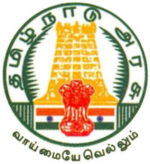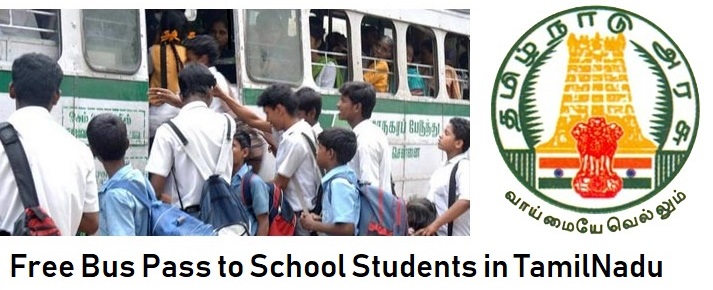Introduction
Tamil Nadu’s Department of Welfare of Differently Abled Persons has established Early Intervention Centres to support infants and young children with hearing impairment. These centres help identify hearing loss early, promote timely follow-up testing, and deliver essential interventions. Moreover, they train children to develop speech and language skills so they can join mainstream schools by age five. Currently, these centres operate across nearly all districts except Tirupur and Ramanathapuram. This initiative reflects the government’s commitment to addressing developmental delays and ensuring inclusive education for every child with hearing loss. Early Intervention Centre For Infants And Young Children in Tamil Nadu has thousands of beneficiaries in a day today affairs.
Goals of the Scheme
Delay in hearing-related diagnosis or intervention can lead to language delays, behavioral challenges, and academic struggles. Consequently, the scheme’s main goal focuses on developing age-appropriate skills in language, speech, and motor development. Through this approach, children prepare for mainstream schooling before turning five. Furthermore, the District Disability Rehabilitation Officer handles identification, diagnosis, and hearing-aid fitment at the district level. By integrating medical assessment with early habilitation, the scheme ensures children receive holistic support during their crucial formative years.

Who Qualifies for Services?
Children from birth up to 36 months (3 years) diagnosed with hearing loss become eligible for services. Similarly, children under three years who face a risk of developmental delays may qualify for intervention. Notably, the law requires children to begin intervention no later than six months of age after diagnosis. Centers focus exclusively on hearing impairment; children with additional disabilities typically do not qualify under this specific scheme.
The Case for Early Diagnosis and Intervention
Early diagnosis yields the most effective outcomes. Tamil Nadu mandates universal newborn hearing screening at birth. After initial detection, infants undergo audiological assessments (like OAE and BERA) and inner ear radiology where needed. If a child has severe to profound hearing loss, then cochlear implant surgery can be offered around eight months of age, followed by intensive aural habilitation and rehabilitative therapy. This combination offers the best chance for developing effective speech and hearing. Importantly, the neural window for language development closes around age two, so intervention before that deadline yields the best results. Otherwise, speech and expressive language may remain permanently affected.
Services Offered at Early Intervention Centres
Each centre delivers a comprehensive package of services:
- Hearing screening and diagnostics using OAE, BERA, and audiometry
- Cochlear implant assessment and fitment, when required
- Speech and language therapy tailored to the child’s age and hearing level
- Parent counselling and training, helping caregivers reinforce learning at home
- Developmental support, including cognitive and motor skill activities
- Dhvani curriculum a specialised syllabus designed by BalaVidyalaya School for the Young Deaf in Chennai
These services remain free of cost. Staff receive annual orientation training to update their knowledge and maintain high standards of care.
Coverage, District Reach & Impact
As of now, centres offer services in 30–32 districts across Tamil Nadu, managed through NGOs in partnership with the government. Karur, Nilgiris, Tiruvallur and many other districts host designated centres. Remarkably, these centres have served over 660 children aged 0–6 years so far. Many young beneficiaries now attend regular schools by age five, thanks to early intervention.
In Chennai, three new early intervention centres will open under the Greater Chennai Corporation, at a cost of ₹1.83 crore. These centres, set up at urban primary health centres, will feature advanced equipment like audiometers and sensory-play areas. They will also hire specialist medical professionals and support early diagnosis for hearing and developmental delays.
Eligibility and Admission Process
Young children from 0–36 months with confirmed hearing impairment may qualify. Admission also extends to children under three who show signs of developmental delays, provided they have no additional disabilities
To apply:
- Visit the District Differently Abled Welfare Officer or office dedicated to welfare of differently abled persons.
- Obtain the official application form, available at the office.
- Attach necessary documents:
- Birth certificate
- National Identity Card for Differently Abled (child)
- Submit the form and receive an acknowledgment receipt.
Families may raise grievances with the Assistant Special Officer at Chennai Commissionerate if required.
How Early Intervention Makes a Difference
By diagnosing hearing loss early and initiating intervention within six months, children can catch up in speech and language development. They avoid academic delays and social isolation. Moreover, early habilitation improves motor awareness and confidence. Parents benefit too, they gain the skills and understanding needed to support their child’s speech. Moreover, the program helps relieve emotional stress, as families see measurable progress in their child’s ability to interact and learn. Early Intervention Centre For Infants And Young Children plays a major role by giving opportunity for the children for early treatment.
By age two, children enrolled early often reach near normal developmental milestones. Consequently, by preschool age, many become ready to join mainstream schools with peers. This transforms long‑term outcomes in education and independence.
Government Role and Partnerships
The scheme runs under the Tamil Nadu Department of Welfare of Differently Abled Persons, in collaboration with NGOs, hospitals, and educational institutions. State nodal centres, like at Madras Medical College, support screening and hearing aid distribution in local hospitals. Other entities such as Amar Seva Sangam and Sevalaya supplement services in specific districts and also run early intervention programmes. Early Intervention Centre For Infants And Young Children saves hundreds of disability.
Why It Matters
First, early intervention decreases the risk of lifelong language deficits. Second, it supports inclusive education by equipping children with basic communication skills before they reach school age. Third, the scheme reduces future costs on special education, speech therapy, or remedial learning. Finally, it empowers families and children, enabling them to participate in society with dignity.
By offering free, structured, early care, Tamil Nadu creates an equitable environment where children with hearing impairment can thrive alongside peers, regardless of socio-economic status.
How to Start: Next Steps for Parents
If your child receives a hearing impairment diagnosis:
- Contact the District Differently Abled Welfare Officer immediately.
- Request and complete the application form.
- Provide all required documents and submit early.
- Attend follow-up assessments and therapy sessions consistently.
- Engage actively in parent training sessions to reinforce progress at home.
Early and consistent enrolment ensures the child benefits maximally from the neural window before age two.
Summary Table
| Feature | Details |
|---|---|
| Focus Age Group | Children aged 0–36 months with confirmed hearing impairment |
| Intervention Deadline | Begin by 6 months after diagnosis |
| Skills Developed | Speech, language, motor, cognitive |
| Goal by Age 5 | Enroll in mainstream school |
| District Coverage | All except Tirupur & Ramanathapuram; ~30 districts |
| Services Offered | Screening, cochlear implants, therapy, parent training, habilitation |
| Cost to Families | Fully free of charge |
| Government Escalation | District officers → State Commissionerate of Differently Abled Persons |
For official guidelines, application forms, and contact details, visit the Tamil Nadu Government’s Department of Welfare of Differently Abled Persons page here: Tamil Nadu Disability Welfare – Official Site.
By combining early screening, intervention, and rehabilitation, Tamil Nadu’s Early Intervention Centres lay the foundation for children with hearing impairment to lead confident, inclusive lives. This initiative demonstrates the government’s commitment to inclusive early childhood development and equal access to education for all children.

